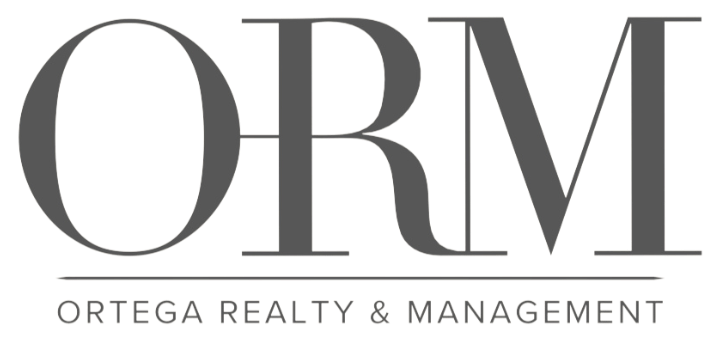Choosing the right school for your child can be an overwhelming task for both parent and student, as the decision lays the foundation for their educational journey.
To shed light on this crucial process, we had the privilege of sitting down with Jacquie Villa Evanko, a seasoned education consultant with multiple years of experience guiding parents and students through the maze of educational options.
In this blog post, we delve into Jacquie’s personal experiences, expertise, and invaluable advice for parents and students on how to go about choosing the right school for their children.
Moving to Portugal
The desire for a change in environment and lifestyle from their time in Singapore became a significant factor in Jacquie and her family’s decision-making process. While they cherished their experiences there, the challenges brought about by the Covid pandemic hindered them from enjoying the aspects they treasured. Consequently, they began exploring alternative options.
Jacquie and her husband Sean compiled a list of their family’s core values and priorities, such as a connection with nature, a distinct lifestyle, and a different pace of life compared to what they had experienced in Asia. These considerations consistently pointed them towards Portugal as an ideal choice for their family.

How to Choose the Right School
Drawing upon her extensive background as an International Admissions Officer, university adviser, and personal experience as a parent, Jacquie offers a comprehensive guide on approaching the school selection process.
The parallels between families seeking the right school for their young ones and students embarking on their university journey are striking. Both of these entail crucial decisions that will shape the future of individual learners. As Jacquie enlightens us, there are valuable insights to glean from these two distinct yet interlinked processes.
By exploring the common ground between these transformative life stages, we aim to illuminate the path for families seeking the best educational experiences for their young learners. In unraveling the essence of Jacquie’s approach, we discover how her guidance empowers both students and parents alike, ensuring that each journey begins with clarity, confidence, and a shared vision for a bright future.
Understanding the Individual Needs
Each child possesses their own set of strengths, weaknesses, and learning styles. As an education consultant, Jacquie emphasizes the significance of taking inventory and reflecting on the family’s values and priorities. By considering the child’s strengths, interests, and experiences at their current school, families can determine what they seek in a new educational environment and establish their very own criteria.
Factors such as location, curriculum preferences, class size, extracurricular activities, cost, and support services all play a vital role in finding the perfect fit for a child’s education. It is essential to rank these criteria based on their importance, recognizing that not all schools may meet every expectation.
For Jacquie and Sean, several key elements held great importance. They sought an international environment where their kids could interact with children and staff from diverse nationalities, similar to their experience in Asia, and a smaller class environment. Additionally, they also desired a school that provided ample opportunities for their children to connect with nature and explore the outdoors.
Choosing a Curriculum
It is crucial to understand the curriculum and how it aligns with the child’s current educational level. Schools should be transparent in providing information about the subjects and learning objectives for each academic year, allowing parents to gauge how well the institution meets the curriculum standards.
Engaging in conversations with teachers and school administrators allows parents to grasp the curriculum’s structure and how it aligns with their child’s educational background so possible adaptations and transition support can be made to ease the child’s adjustment to the new curriculum.
Involving the Kids
Involving the children in the decision-making process is also valuable, allowing them to be a part of this decision and to consider their thoughts while acknowledging potential limitations. Creating a pros and cons list with them is super important. It is helpful when comparing and finalizing school options.
Acknowledging their preferences and considering their thoughts allows children to develop a sense of independence and ownership over the decision. By being involved in the process, they gain valuable experiences in decision-making and critical thinking.
While Jacquie and Sean had their discussions about priorities, costs, and locations, they also valued the input of their children. They compiled a pros and cons list with their children, aged 7 and 9 at the time, to make the kids feel like active participants in the family’s decision.
Research and Visit
While online resources can provide useful information, visiting schools in person offers a firsthand experience of the campus culture, faculty-student interaction, and overall ambiance. It enables parents and students to evaluate whether a school’s environment aligns with their aspirations and expectations.
Jacquie stresses the importance of paying attention to intuition and the overall feeling the school gives off after the first visit. Engaging in conversations with children over the age of 6 about their impressions can provide valuable insights into their comfort and potential connection to the school community.
Engaging with the School Community
Understanding the level of parent engagement can offer valuable insights into the school’s culture and commitment to fostering a collaborative learning environment. Knowledge of parents’ associations, clubs, and events organized by the school community provides a glimpse of the sense of community and support offered to both students and their families.
Considering these aspects can contribute to a well-rounded decision-making process, ensuring that the chosen school aligns not only with academic needs but also with the family’s desired level of involvement and connection within the school community.
Book Recommendations
Thrivers by Michelle Borba for parents with younger children, those still in primary or high school. The book talks about the character strengths that sets students who are thrivers apart which Jacquie believes we should be focusing our time on with students.
The Parent Compass: Navigating Your Teen’s Wellness and Academic Journey in Today’s Competitive World by Cynthia Clumeck Muchnick and Jenn Bowie Curtis which she recommends for families with college-bound high school students.
Working with Jacquie
For Jacquie, finding the right fit for each family is a priority. She actively listens to their needs, encourages self-reflection, and helps them understand the importance of their preferences and values. Jacquie’s philosophy revolves around fostering meaningful connections and assisting families in making choices that align with their aspirations and individuality.
The first step is ensuring that the family aligns with her values and approach to the consulting process. To establish this fit, she conducts a session with the family, allowing them to learn more about each other. If they are a good match, they determine the best way to work together, whether through a comprehensive package or hourly sessions, depending on the family’s needs.
Jacquie then requests the student’s academic records and conducts an in-depth interview. This process helps her understand the student better and offers tailored advice that aids both her guidance and the student’s self-reflection on approaching the college application process.
Jacquie provides information specific to the student’s needs and has them conduct research, providing feedback and impressions. With this insight, she equips the student with real advice, guidance, and a structured timeline for their application process.
Finally, Jacquie and the student establish a timeline based on application deadlines and the destinations they are applying to. The level of support and guidance varies depending on the student’s needs throughout the process.
If you’d like to learn more, you can contact Jacquie directly at v.jacquie@gmail.com
About Jacquie:
Jacquie’s motivation to pursue a global career stemmed from a deep desire to connect people from diverse corners of the world during her formative years. She saw herself as a liaison, bridging cultural gaps and fostering understanding between different communities. As a Mexican American, she recognized the importance of breaking down barriers caused by cultural beliefs, and she felt driven to fill those gaps.
In a previous role, Jacquie worked at a United World College, a position that resonated deeply with her values. At the college, she was able to support scholarship students from various countries actively. She also worked as an International Admissions Officer at both Boston University and Brandeis in Boston. In this role, she traveled extensively around the world, engaging with students, families, and counselors to promote the universities and assess international applications. Her responsibilities included reviewing and evaluating applications from international applicants, playing a pivotal role in the selection process.
Later, in Singapore, Jacquie worked as a university adviser, assisting approximately 500 students in their college applications. Her expertise extended across a diverse range of destinations, including the US, UK, Canada, Australia, Asia, and parts of Europe. Throughout her tenure, she gained comprehensive knowledge of each region’s unique application requirements and admission processes, ensuring that students received tailored guidance for their chosen destinations.
